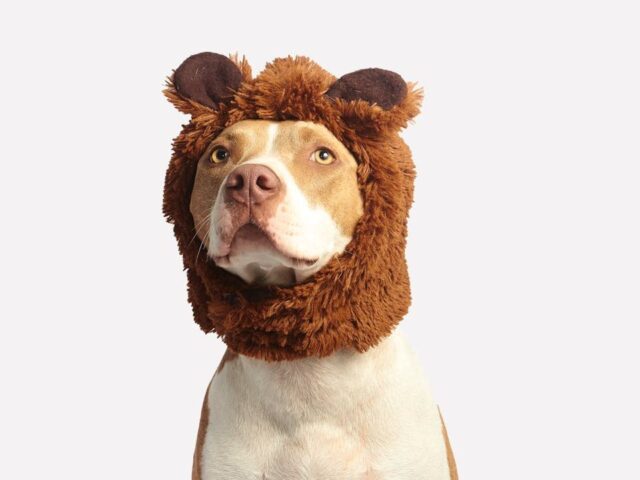As a pet owner, you may be wondering whether it’s safe to feed your dog cheese. The short answer is yes, dogs can eat cheese, but it’s important to do so in moderation. While cheese can be a great training tool or a way to help your dog take medication, there are some things to consider before adding it to their diet.
Cheese is high in fat, which means that overfeeding it to your dog can lead to weight gain and obesity, as well as potentially fatal illnesses like pancreatitis. Some types of cheese also contain toxic ingredients like garlic or onions, which can be harmful to dogs. Additionally, some dogs may have lactose intolerance and may not digest cheese well.
If you’re considering feeding your dog cheese, it’s important to consult with your veterinarian first. They can advise you on the appropriate amounts and types of cheese to feed your dog based on their individual health and dietary needs.
Table of Contents
Key Takeaways
- Cheese can be fed to dogs in moderation, but it’s important to consider their individual health and dietary needs.
- Feeding too much cheese to your dog can lead to weight gain and potentially fatal illnesses like pancreatitis.
- Some types of cheese contain toxic ingredients like garlic or onions, which can be harmful to dogs.
- Low-fat cheeses like mozzarella, cottage cheese, or soft goat cheese are better options for dogs.
- It’s important to observe your dog for any signs of digestive upset after feeding them cheese, as some dogs may have lactose intolerance.
- Always consult with a veterinarian before adding cheese to your dog’s diet.
The Benefits of Cheese for Dogs

Cheese can be a great training tool and a way to conceal medication for dogs. Most dogs love the taste of cheese and will do anything to get a piece.
This makes it an excellent choice for training your dog and rewarding good behavior. It’s also a great way to administer medication to your dog if they are not fond of pills. Simply wrap the medication in a small piece of cheese and your dog will happily swallow it without even realizing it.
Another benefit of feeding cheese to dogs is that it contains high-quality protein. This is important for maintaining your dog’s muscle mass and overall health. However, it’s important to note that cheese should not be fed as a primary source of protein, as it is high in fat and calories.
Additionally, low-fat cheese, such as mozzarella, cottage cheese, and soft goat cheese, can provide a good source of calcium and vitamin D for dogs. Calcium is essential for the development and maintenance of strong bones and teeth, and vitamin D helps the body absorb calcium.
Overall, cheese can be a beneficial addition to your dog’s diet in moderation, as a training tool or a way to administer medication. However, it should not be fed as a primary source of nutrition and pet owners should be aware of the potential risks associated with feeding their dogs too much cheese.
Considerations for Feeding Cheese to Dogs

However, there are some things to consider when it comes to feeding cheese to dogs. Cheese is high in fat, which can lead to weight gain and obesity in dogs. In addition, overfeeding cheese can increase the risk of pancreatitis, a potentially fatal illness. It’s important to monitor your dog’s weight and overall health when adding cheese to their diet to prevent these issues.
Some types of cheese also contain toxic ingredients like garlic and onions, which can be harmful to dogs. It’s best to stick to low-fat cheeses such as mozzarella, cottage cheese, or soft goat cheese. These options can still provide dogs with the benefits of cheese without the risk of excessive fat intake or exposure to toxic ingredients.
It’s also important to note that some dogs may be lactose intolerant and may not digest cheese well. Signs of digestive upset, such as diarrhea or vomiting, should be closely monitored. If your dog experiences any negative reactions after consuming cheese, it’s best to avoid feeding it to them in the future.
Consulting with a veterinarian before adding cheese to your dog’s diet is always recommended. A professional can provide tailored advice based on your dog’s individual health and dietary needs. With proper consideration and moderation, cheese can be a safe and enjoyable treat for your furry friend.
Types of Cheese Suitable for Dogs

It’s best to feed dogs low-fat cheeses such as mozzarella, cottage cheese, or soft goat cheese. These cheeses are not only safe for dogs to consume, but they also provide some nutritional benefits. For example, cottage cheese is a good source of protein and calcium, while mozzarella is low in fat and sodium.
When choosing cheese for your dog, it’s important to avoid any types of cheese that contain toxic ingredients like garlic and onions. These ingredients can be harmful to dogs and can cause serious health problems.
In addition to mozzarella, cottage cheese, and soft goat cheese, there are other low-fat cheeses that can be safely fed to dogs. Some examples include:
| Cheese Type | Description |
|---|---|
| Cheddar Cheese | Low-fat cheddar cheese can be given to dogs in small amounts as a treat. |
| Ricotta Cheese | Ricotta cheese is low in fat and can be given to dogs as a treat. It’s also a good source of protein and calcium. |
| Cream Cheese | Low-fat cream cheese can be given to dogs in small amounts as a treat. However, it’s important to avoid any cream cheese that contains garlic or onions. |
Overall, it’s important to remember that cheese should only be fed to dogs in moderation. It’s also important to observe your dog for any signs of digestive upset after feeding them cheese. If you have any concerns about adding cheese to your dog’s diet, it’s always best to consult with a veterinarian for professional advice tailored to your individual dog’s needs.
Potential Issues with Cheese for Dogs

While cheese can be a tasty treat for dogs, it’s important to consider some potential issues that can arise when feeding cheese to your furry friend.
Some dogs may have lactose intolerance, which means they may not be able to properly digest lactose, a sugar found in milk and dairy products like cheese. Signs of lactose intolerance in dogs include diarrhea, vomiting, and gas.
Even for dogs without lactose intolerance, cheese can be difficult to digest in large quantities and may lead to digestive upset. Signs of digestive upset in dogs include vomiting, diarrhea, loss of appetite, and lethargy.
To avoid potential problems, it’s best to feed cheese to your dog in moderation and observe them for any signs of discomfort or digestive issues. If you notice any problems, it’s best to cut back on the amount of cheese you’re feeding or eliminate it from your dog’s diet altogether.
Ultimately, it’s always a good idea to consult with your veterinarian before adding cheese or any new food to your dog’s diet. Your vet can help you determine what’s best for your dog’s individual health and dietary needs.
Consulting a Veterinarian

It’s important to consult with a veterinarian before adding cheese to your dog’s diet. Every dog is different and may have unique health concerns or dietary needs that should be taken into consideration. A professional can provide advice on the appropriate amount and type of cheese to feed your dog, as well as help monitor their health for any signs of lactose intolerance or digestive upset.
When discussing cheese with your veterinarian, be sure to mention your reasons for wanting to add it to your dog’s diet. Whether for training purposes or to help conceal medication, your veterinarian can provide recommendations based on your specific goals and your dog’s individual needs.
In addition to consulting with a veterinarian, it’s important to introduce cheese to your dog’s diet slowly and in small amounts, gradually increasing the portion size over time. This can help avoid any potential digestive issues and allow your dog’s system to adjust to the new food.
Overall, adding cheese to your dog’s diet can be a nutritious and enjoyable treat, but it’s important to do so responsibly and with the guidance of a professional. By consulting with a veterinarian and monitoring your dog’s health, you can safely incorporate cheese into your dog’s diet and provide them with an extra special treat.
Final Thoughts on “Can dogs eat cheese?
In conclusion, while dogs can eat cheese, it should be done in moderation and following certain guidelines to ensure their health and well-being.
Cheese can be a great training tool and a way to conceal medication for dogs, but pet owners should be aware of its high fat content, which can lead to weight gain and obesity, as well as potentially fatal illnesses like pancreatitis. To avoid these issues, it’s best to feed dogs low-fat cheeses such as mozzarella, cottage cheese, or soft goat cheese.
Additionally, some dogs may have lactose intolerance and may not digest cheese well. Pet owners should observe their dogs for any signs of digestive upset after feeding them cheese.
It’s also important to note that some cheeses contain toxic ingredients like garlic and onions, which should be avoided. Lastly, it’s always best to consult with a veterinarian before adding cheese to your dog’s diet, as they can provide professional advice tailored to your individual dog’s health and dietary needs.
FAQ on “Can dogs eat cheese?”
Yes, dogs can eat cheese, but it should be fed in moderation.
Cheese can be a great training tool and a way to conceal medication for dogs.
Pet owners should be aware that cheese is high in fat, which can lead to weight gain and potentially fatal illnesses like pancreatitis.
Low-fat cheeses such as mozzarella, cottage cheese, and soft goat cheese are recommended for dogs.
Some dogs may have lactose intolerance and may not digest cheese well. Pet owners should monitor their dogs for any signs of digestive upset after feeding them cheese.
Yes, it’s always best to consult with a veterinarian before adding cheese to your dog’s diet to ensure it is appropriate for your individual dog and their specific health needs.
More Related Stories:









